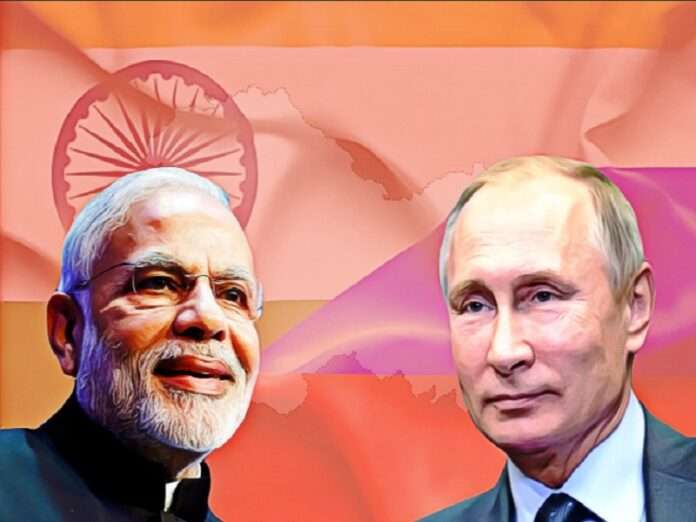Sputnik reported over the weekend that Russia approved a Joint Military Deployments (JMD) agreement with India, which is essentially the “Reciprocal Exchange of Logistics” (RELOS) deal that they’ve been negotiating for the past few years. This pact will enable each of their armed forces to more easily use the other’s facilities, thus opening up the possibility of more regular visits by their navies and imbuing a symbolic military dimension to their Eastern Maritime Corridor between Chabahar and Vladivostok.
The timing isn’t coincidental either since it immediately follows the Russian-North Korean mutual defense pact as well as Russia and Vietnam reaffirming the strength of their strategic partnership by pledging not to enter into any agreements with anyone else that could pose a threat to the other’s interests. These two alliances, the first formal and the second unofficial, are now followed by Russia’s JMD pact with India, thus completing the new recalibration of its Asian strategy.
Up until this point, that country’s foes and even friends alike assumed that Russia was “pivoting” towards China, with the innuendo being that it’ll privilege Beijing’s interests over others. Had that been the case, then this could have taken the form of joint pressure on North Korea as punishment for its missile tests, joint naval drills in China’s claimed portion of the Vietnamese-disputed East Sea/South China Sea, and scaling back military ties with India to give China an edge in their Himalayan disputes.
Instead, Russia entered into a formal military alliance with North Korea, confirmed that it wouldn’t ever do anything that would threaten Vietnam’s interests (the innuendo being that it’ll never lend credence to China’s claimed portion of their disputed maritime territory), and clinched the JMD with India. The pro-BRI faction of Russia’s expert and policymaking community probably isn’t pleased with these outcomes since they strengthen the hand of their balancing/pragmatic “friendly rivals”.
To explain, the first believes that a return to Sino-US bi-multipolarity is inevitable so Russia should accelerate China’s superpower trajectory as revenge against the US for everything that it’s done since 2022. By contrast, the second wants to retain Russia’s balancing act in order to avoid disproportionate dependence on the People’s Republic, believing that it’s still possible to midwife complex multipolarity throughout the course of the global systemic transition instead of returning to bi-multipolarity.
As regards the latest three military-strategic developments, their cumulative effect is to signal that Russia will never become China’s “junior partner” like the pro-BRI faction implies that it should do “for the greater good”, and they also serve to complicate regional geopolitical matters for the People’s Republic. The US might bolster its military presence in Northeast Asia after North Korea’s pact with Russia while Vietnam and India will continue to confidently uphold their respective territorial claims vis-à-vis China.
While the first consequence might push China into a spiraling rivalry with the US that could then be leveraged by Russia and North Korea to get it to more meaningfully support them against their shared enemy, the second strengthens Moscow’s potential position as a mediator between them and Beijing. The first is therefore a different flavor of Sino-US bi-multipolarity, albeit with more strategic autonomy for Russia and North Korea, whereas the second keeps complex multipolarity trends on track.
Taken together, these moves can be interpreted as a “power play” by Russia’s balancing/pragmatic faction against their pro-BRI “friendly rivals”, the latter of whom have been on the upswing for the past year but are now once again on the backfoot like before. Russia’s strategic partnership with China remains intact and continues to have a positive impact on the world, but Russia is now much less likely to become China’s “junior partner” than before and privilege it over North Korea, Vietnam, and India.








